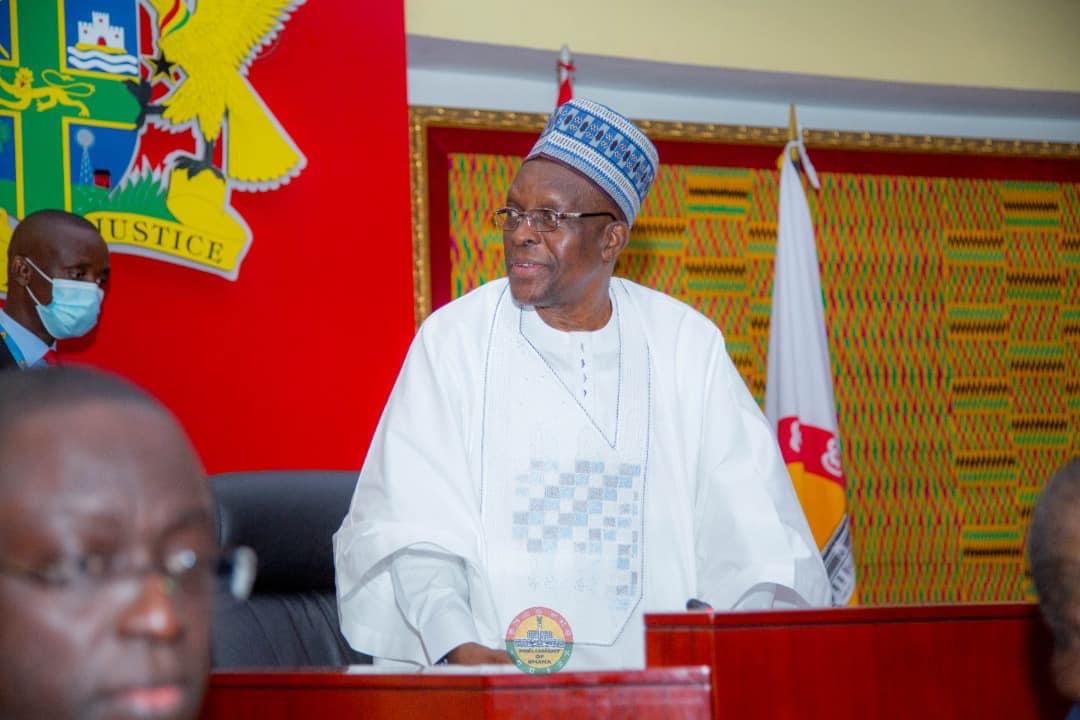
‘Parliament is broke’ comment
Parliament plays an important role in the life of a nation. It performs important functions, such as: making new laws, changing existing laws and repealing laws which are no longer needed; representing and articulating the views and wishes of the citizenry in decision-making processes, and overseeing the activities of the Executive, so that the government is accountable to the people.
Achieving good governance requires the existence of a strong, effective and efficient Parliament. This is so because Parliament plays a crucial role in gauging, collating and presenting the views and needs of the people, articulating their expectations and aspirations in determining the national development agenda.
It is, for this reason, the disclosure by the Speaker of Parliament, Alban Bagbin, on the floor of the house during proceedings last Thursday that “Parliament is broke” was most worrying.
Even though the government released GH¢20 million to Parliament to run its operations, the announcement gained national attention and discussions, especially because of the importance of the institution.
Without belabouring the point, the 1992 Constitution has given Parliament a huge oversight responsibility. It has further given it enormous powers to carry out this responsibility.
As an oversight body, Parliament helps identify problems and policy challenges that require attention and assists in overcoming bureaucratic inertia.
Parliament is crucial to the achievement of good governance in the country, being one of the key state institutions of democracy playing an important role in terms of legislation, oversight and representation. Its representational role includes ensuring that the citizenry and other stakeholders have a voice at the national level and are, therefore, involved in national governance issues.
As an important arm of the State, Parliament has a crucial role in promoting and protecting democracy and good governance, thereby establishing not only the necessary checks and balances but also developing norms and standards for institutions of democracy and governance.
The role and functions of Parliament to promote and protect democracy and good governance assume great significance today in view of the basic principles and assumptions associated with a strong democracy.
Govt releases GH¢25million to Parliament
It, therefore, becomes a matter of concern when there is the slightest indication that Parliament’s effectiveness is being undermined by certain actions or inaction of the Executive.
And this issue of delay in the release of funds to Parliament goes to feed into a perception held by many governance experts — that Parliament has, in practice, not developed into that autonomous, independent and vital institution capable of asserting its authority and discharging its constitutional functions.
We at the Daily Graphic believe that the issue of Parliament asserting itself lies squarely in the express text of the Constitution itself, which does not permit Parliament to have its own funding independent of the Executive.
Financial autonomy is very germane, almost a prerequisite, to independence and, subsequently, strong oversight.
Like many state institutions, Parliament’s budget is channelled through the Ministry of Finance and added to the country’s budget and finally approved by Parliament. The effect of this procedure on the autonomy and independence of Parliament is far from settled. On the other hand, it may be argued that the submission of Parliament’s budget to the Minister of Finance for approval infringes on its independence and autonomy.
It is very obvious that the actual disbursement of the approved budget has, over the years, proved to be a challenge in this regard.
Our position on this matter is very simple — we hold the sincere view that Parliament’s independence can be enhanced if its finances are not subjected to Executive influences.
We must cure this ill that has, over the period of our Fourth Republic, ensured that Parliament’s oversight function is asserted in minimal terms.
